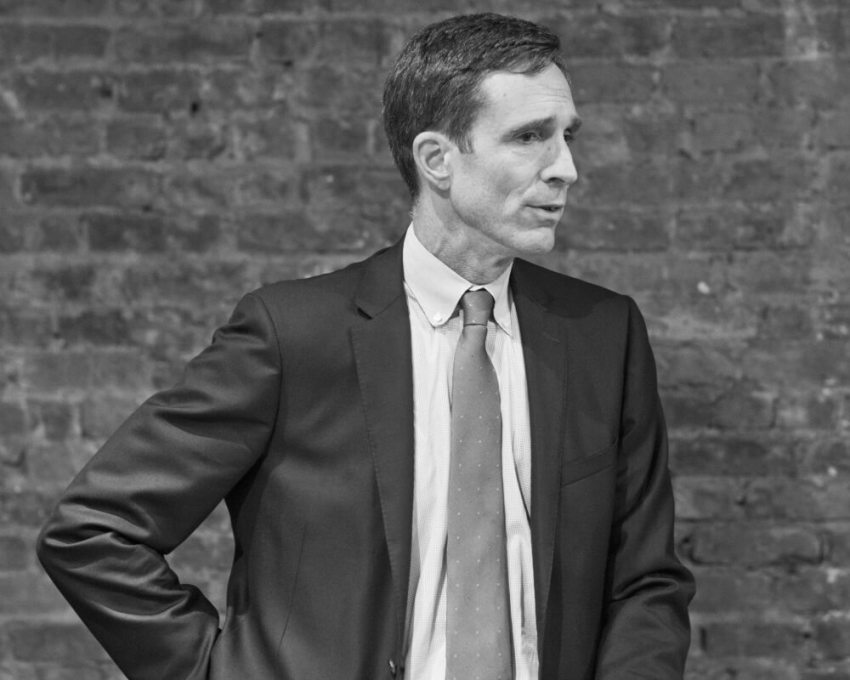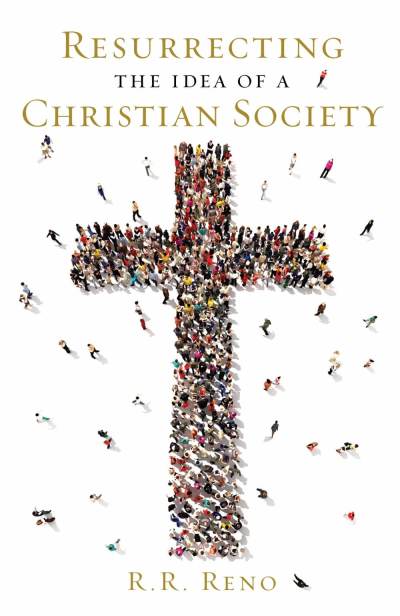Trump Phenomenon Related to 'Human Need to Love Something Greater Than Oneself,' R. R. Reno Says (Part 2)

Donald Trump is tapping into a fundamental human need to love something greater than oneself, and people are vulnerable to such "unhealthy expressions" if not given the opportunity to love good, true greater things, says First Things editor R.R. Reno.
In part one of The Christian Post's interview with Reno, he discussed the inspiration behind his new book, Resurrecting the Idea Of A Christian Society, and how our national meritocracy and erosion of local communities has fed America's current moral and cultural morass.
In part two of our intervew, he further urges Christians not to lament but to take heart in troubled times because they present opportunities to engage people thoughtfully.
Reno spoke to the bitter divides manifesting in the United States such that Christians are now partially blamed for an Orlando mass shooting by a man who pledged allegiance to ISIS, and the increasingly hostile, secular climate in which Christians find themselves. Reno believes, however, the many young Christian leaders who understand that faith is not automatic portends a coming awakening.
Here is the lightly edited transcript of the rest of CP's interview with Reno:
CP: You often cite Charles Murray's seminal work Coming Apart and the distressing socio-economic and cultural gaps that are widening in American culture. Do you believe, as some have argued, that the church in America is also coming apart?
Reno: The main problem facing Christians today is a kind of lament, a spirit of lament of having lost the country. And so sometimes there's this nostalgic lament, other times there's this bitter lament, but it tends to make contemporary Christians resentful of the present age. So it creates a defensive posture towards the contemporary moment as we feel the current going against us.
And there are lots of reasons to be defensive, don't get me wrong. But I try to make the case that the percentage of the population that goes to church has not declined. So it is not the case that Christianity is in decline. Instead what has happened is very powerful elements of our society are shaking off this presumptive authority of Christianity to define their lives and for the wider public culture of America.
CP: So you're saying it's merely a starker contrast ...

Reno: The contrast is starker. So I think, you know, awareness of reality is probably nine-tenths of the battle. To be sober-minded about the changes but also realistic about our strengths.
So the bad news is that these are troubled times [for Christians]. The good news is that these are troubled times for Christians. Because the institutions that are the most troubled in our society are institutions that are actually dominated by the rising, newly aggressive secular progressives and not those influenced by Christianity.
When one thinks of a contemporary university, whether it's a student protest about racism, or women anxious about sexual assault, these troubles are not rooted in the influence of evangelical pastors in Texas. Failing inner city schools are not being run by Catholic bishops. The South side of Chicago and the crisis of shootings and murders there is not a consequence of the undue influence of the Christian faith in that community. You can go down the list, the shooting in Dallas, in Baton Rouge. For that matter, the shooting in Orlando...
CP: Well, secular progressives did try to put that Orlando one on Christians ...
Reno: That's right, but of course, that's part of the thing. The typical spirit is that, if you are a true believer in the progressive cause, is that "Well, the problem is that we haven't gone far enough." But at some point, John Q. Public will become very disheartened with those who are running these failing institutions and Christians might find themselves in a much better position to speak generously in the public square about how we think society should be ordered and structured.
CP: The Christian worldview is distinctly supernatural, one that recognizes that humans, having been born of the Spirit, are in fact spiritual beings who wrestle not against flesh and blood but against the evil forces of this dark world. You reference this cosmic battle vis-à-vis Ephesians 6 in the last chapter of your book. You have mentioned how our national meritocracy erodes local institutions, and in that same vein that I would take it step further and argue that because our society is so meritocratic we tend to value individuals for their ability to perform mental gymnastics and not because they are made in the image of God. How can Christians grasp the reality of this fundamentally spiritual and anthropological conflict and how do you see it playing out in our culture?
Reno: I think the key anthropological conflict is between a Christian view — and a view shared by many philosophies of life — [and materialism]. [The Christian view] is that human beings are made for something higher than themselves. And so human beings are fulfilled insofar as they become more loyal and more devoted to something greater then themselves. The great crisis in our society is that the materialistic worldview cannot offer, it does not provide someone with anything higher than themselves to serve. That is at the root of our cultural distempers at present.
This whole Trump phenomenon and his nationalistic rhetoric ... it offers people something greater than themselves, the nation. Because they know in their heart that life is more than about just me. The problem is that when that human need is not met in a healthy way it becomes very vulnerable to unhealthy expressions. So we need to have a society that provides people with an opportunity for higher loves so that we don't become victims of false loves.
CP: Where do you see God most at work today?
Reno: That's a great question. It seems to me that Christian leaders today, particularly younger ones, are very clear about the challenges Christians face. They have no illusions about contemporary American society, they are aware that the current no longer runs with them and in fact runs against them. They are turning toward internal renewal and that's very promising.
And we have to equip the saints. You know, you have to put on the armor of God, that is, you actually have to put it on. It's not automatic. And that means both the courage to speak and act in an increasingly, in some instances hostile, secular culture. But also in a spirit of love to be present to others, for without that spirit, no Christian witness will be effective.
This rising generation of Christian leaders knows that Christianity is not automatic anymore. And that's a good thing, a kind of an awakening that I think will bear good fruit.



























